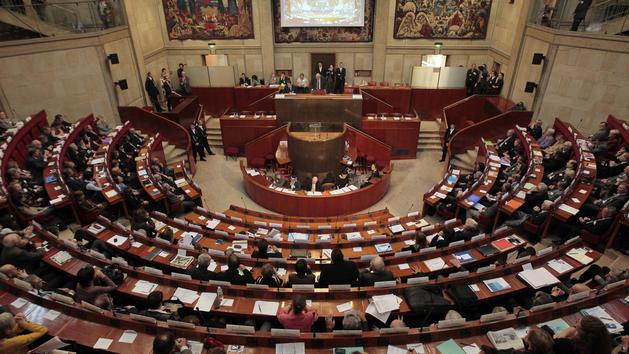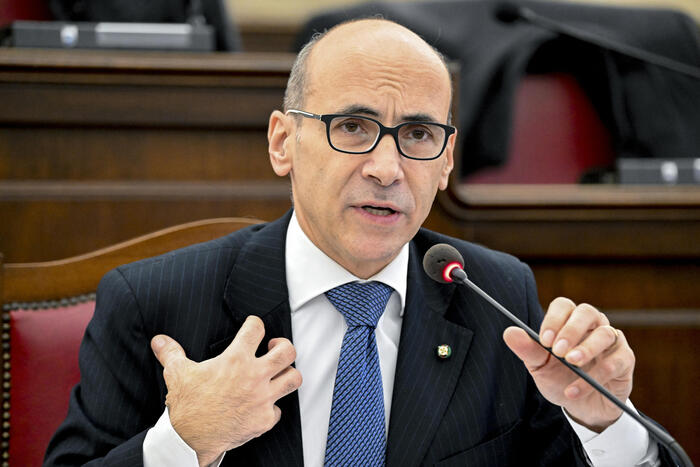Le Figaro
The question of the usefulness of the Economic, Social and Environmental Council (EESC) has been asked for years. The President of the Republic had even announced a major reform at the start of the five-year term and the reduction of a third of its members ... But there has been no constitutional reform and we are left with two organic laws for not much , or so little.
Read also: Jean-Éric Schoettl: "A referendum on the recommendations of the Climate Convention would be an impasse"
First of all, the EESC retains its name and will not be transformed into a Chamber or a Council for citizen participation . Then, the number of its members will not be reduced as much as what had been announced in Congress at Versailles. It will increase from 233 to 175 members instead of 155 as in the two previous bills and in the first version of the text.
The 3 main poles (economic life and social dialogue (140 members), associative life and social and territorial cohesion (60), nature protection and environment (33)) will be replaced by the " economic " (104), " social " groups. "(45) and" protection of nature and the environment "(26) while within them the qualified persons designated by the government would be removed (currently 40 members) and replaced by" representatives of civil society " .
But what is the difference between a " qualified person " and a " representative of civil society "? The major difference is that they will no longer be designated directly by the government but on the proposal of representative bodies. The nuance could turn out to be tenuous.
Next, the powers of the EESC are supposed to be " enlarged ". He may be contacted by online petition (500,000 signatures) with response within 6 months from him, but without effect on the government or parliamentary agenda. The EESC will also have the capacity to organize a public consultation by drawing lots, the members of which will be able to participate (without voting rights) in the work of the committees (which would replace the sections).
Repeated citizen conventions?
The impression that the text gives is that the organic law prepares citizens' conventions - as we had for the climate - repeatedly. With all the democratic limits that this entails (what representativeness, what relevance of the proposals?) And the risk of creating a lot of frustration.
Simplify by complexifying? The EESC, " at the crossroads of public consultations ", is not a substitute for planned legal or regulatory consultations. To offset this effect, the text provides for a complex system of " simplification " of the procedures for opinion of the social partners in particular. At the risk of " rushing " the consultative production and especially the representativeness yet sought. Exit therefore the massive suppression of advisory bodies.
Read also: Climate convention: an astronomical cost for the economy
Nothing is said about the reduction of the EESC budget with the reduction in the number of members. The budget of 40 million euros per year whose management was pinned by the Court of Auditors on the working time of agents, bonuses, absenteeism of members ... The Perruchot report had also pointed out in its time that the EESC was used to finance our unions, the members paying them all or part of their allowances.
These two organic laws were an opportunity to clarify the role of the third chamber of the Republic that General de Gaulle had proposed in 1969 to merge with the Senate. Since then, we've been going in circles. When will we really ask the question of the usefulness of the EESC and its abolition?
Le Figaro
The Macronometer, observatory of government reforms, is a site of the iFRAP Foundation in partnership with Le Figaro . It is a tool dedicated to the assessment of Emmanuel Macron's five-year term: an econometric assessment in relation to his electoral program and the announcements of his government. With Le Macronomètre, government action is noted out of 10 every Wednesday before the Council of Ministers and becomes readable at a glance. The Macronometer allows everyone to form an opinion on the keeping or not of the promises of the President of the Republic and on the effectiveness of government reforms.








/cloudfront-eu-central-1.images.arcpublishing.com/prisa/6ECQZUOPKRHVLNAFVOMUMAFZRE.jpg)






